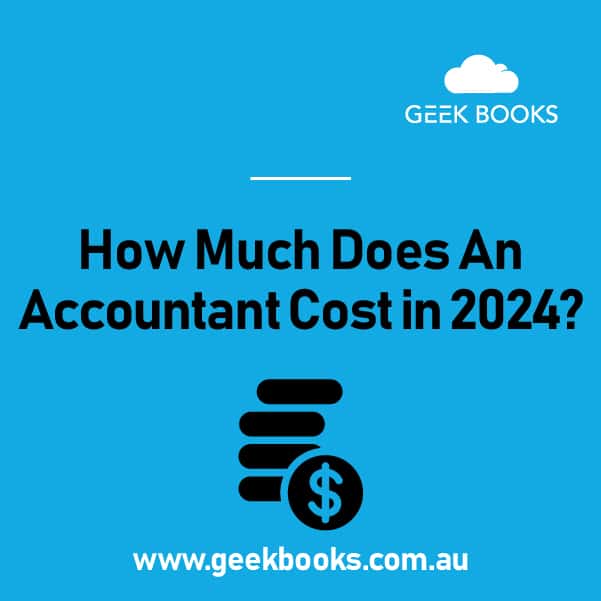In 2024, the cost of an accountant in Australia is more than a financial consideration for small business owners; it’s a strategic decision.
While you might be tempted to go for the lowest quote, remember that expertise and reliability can save you money and headaches in the long run.
The right accountant will offer more than just number-crunching- they’ll be a crucial ally in your business’ growth.
The cost of hiring an accountant is influenced by various factors, like the level of expertise, complexity of financial tasks, and specific services you need.
Are you wondering why the cost of an accountant has changed over the years?
- Market trends: With a market value of over $27 billion in 2023, the accounting industry in Australia is both competitive and varied.
- Technology impact: The rise of AI and automation tools has altered how accountants operate. This tech shift can affect the pricing of some accounting services, offering efficiencies and new services.
- Professional demand: A high demand for skilled accountants has influenced the cost of hiring qualified professionals.
As a small business owner, it’s essential to consider these factors when budgeting for accounting services in 2024.
Exactly how much does an accountant cost? Let’s find out!
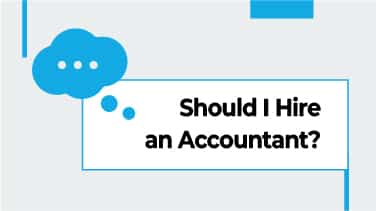
Should I Hire an Accountant?
Quality accounting support can be a valuable investment, offering not just compliance assurance but also strategic financial insights to help grow your business.
When deciding whether to hire an accountant, weigh the pros and cons based on your business needs.
Here’s an overview to help you make an informed decision.
Pros
- Expertise and accuracy: Accountants offer professional expertise, ensuring accuracy in financial reporting and compliance with tax laws. Such expertise is particularly beneficial for complex tax situations or if you own a business.
- Time savings: An accountant can save you significant time. For instance, completing a business tax return takes an average of 21 hours! By outsourcing this task, you can focus on other aspects of your business.
- Cost savings: While hiring an accountant is an upfront cost, they can identify tax deductions and credits you might miss, potentially saving you money. They can also assist in avoiding costly mistakes and tax penalties.
- Comprehensive services: Many accountants offer a range of services invaluable for long-term business planning and growth, including tax planning, business registration assistance, and financial advice.
- Industry knowledge: Accountants often have insights into your specific industry, which can be beneficial in making strategic financial decisions.
Cons
- Cost: Hiring an accountant, especially a Certified Public Accountant (CPA) or Chartered Accountant (CA), can be expensive. CPAs and CAs are highly qualified accountants a small business owner might need for complex financial tasks, such as in-depth tax planning and compliance, financial reporting, and strategic business advising.
- Time to service: Accountants work with multiple clients, so there may be a wait time for their services, especially during peak periods like tax season.
- Overqualification for simple tasks: A CPA or CA might be overqualified for simple bookkeeping or basic tax returns, and their higher rates might not be justifiable. In such cases, tax software or a bookkeeper might be more cost-effective.
When To Hire an Accountant
Are you still on the fence after weighing the pros and cons?
You should consider hiring an accountant if
- You’re self-employed or have a complex tax situation.
- You’re starting a business and need guidance on financial and tax responsibilities.
- You own a business that needs detailed financial reporting, strategic planning for growth, or management of financial risks.
- Your business is undergoing significant changes, such as expansion, downsizing, or restructuring.
- You need expert advice on tax-efficient strategies or to navigate changing tax laws.
- You’re facing challenges in managing cash flow, budgeting, or financial decision-making.
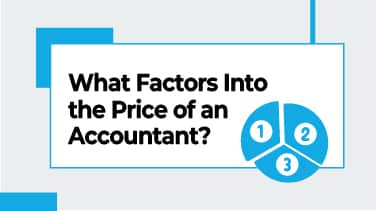
What Factors Into the Price of an Accountant?
Several factors influence the pricing of an accountant.
- Years of experience: More experienced accountants typically charge higher rates due to their extensive knowledge and expertise.
- Generalist vs specialist: Specialists in certain accounting areas often command higher fees than generalists due to their specialised skills. For example, bookkeepers and business accountants are considered generalists, while forensic and tax accountants are specialists.
- Certified Public Accountant (CPA) vs Chartered Accountant (CA): CPAs focus on corporate finance and auditing, whereas CAs cover a broader accounting range, including management accounting and business strategy. This difference in specialisation and training can influence their pricing.
- Small vs large accounting firm: Large firms may charge more due to their broader range of services and resources, while smaller firms might offer more competitive rates.
- Complexity of taxes: The more complicated your tax situation, such as owning a large business or having multiple income sources, the higher the accounting cost due to the increased time and expertise required.
- Location: Accounting fees can vary based on geographic location due to differences in the cost of living and regional demand.
- Service frequency: Whether you need ongoing services (like monthly bookkeeping) or one-time assistance (such as annual tax filing) can impact pricing.
- Technology and tools: Accountants who utilise advanced accounting software or specialised tools may charge more, but these technologies can improve efficiency and accuracy.
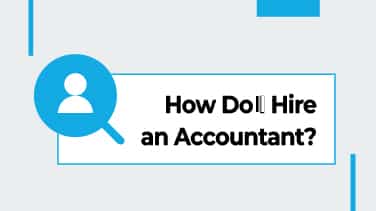
How Do I Hire an Accountant?
That’s a good question!
Search online directories, accounting firms’ websites, local business networks, and online platforms like LinkedIn to find accountants with good client reviews.
Also, seek out recommendations from other business owners.
Once you find some options, verify their CPA (Certified Public Accountant) or CA (Chartered Accountant) qualifications.
Or, for a bookkeeper, their Certificate IV in Bookkeeping or Accounting and membership with a professional body like the Institute of Certified Bookkeepers (ICB).
Ask questions to find out if they understand your specific industry and financial needs well.
Next, it’s time to talk numbers. Ask for detailed price quotes to understand their fee structure. It’s wise to shop around and compare services and rates from different accountants or firms.
Be cautious of any red flags, like lack of clear communication, overly aggressive tax strategies, or prices that seem too good to be true.
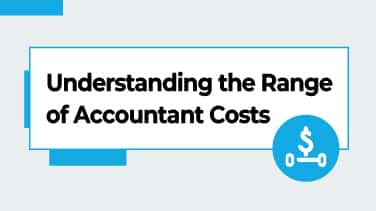
Understanding the Range of Accountant Costs
Accounting services can encompass a broad spectrum of prices, which are influenced by your specific financial requirements and the accountant’s level of expertise.
For straightforward accounting needs, prices can be quite accessible, with the cost increasing proportionally to the complexity and specialisation of the services provided.
Small businesses might find more economical options suitable for their budget, while larger enterprises with more intricate financial structures could expect higher fees due to the increased demand for specialised expertise.
It’s beneficial to assess the accounting support your business requires and engage with a professional who offers the necessary experience for businesses of your scale, ensuring you receive appropriate services at a value that aligns with your financial expectations.
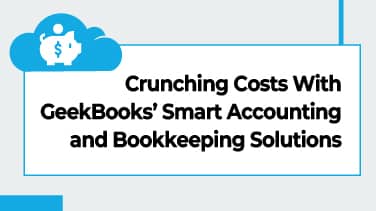
Crunching Costs With GeekBooks’ Smart Accounting and Bookkeeping Solutions
Unleash the potential of your business with GeekBooks’ expert accounting and bookkeeping services.
Our team offers professional, reliable, and cost-effective bookkeeping services tailored to small businesses across Australia.
We handle everything from payroll and BAS preparation to superannuation and bank reconciliation.
Are you ready to simplify your finances and focus on growth?
Contact GeekBooks today and discover how our bookkeepers can make accounting stress-free for your business.
Complete our online form or call 02 9158 3591 for a free bookkeeping quote.


